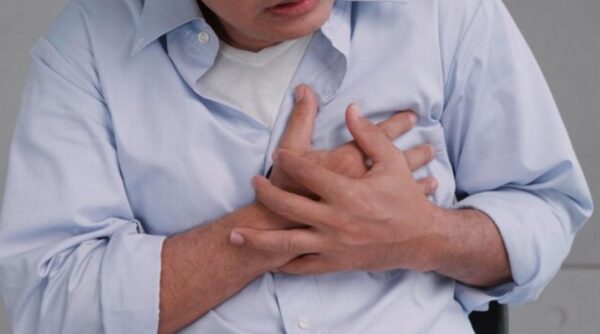
It’s not just a figure of speech. Broken heart syndrome is real, and men are more likely to die from it.
A sudden stressful event like death of a loved one or severe emotional distress may lead to this temporary condition.
Symptoms of broken heart syndrome
Chest discomfort, shortness of breath, heart palpitations and arrhythmia, or irregular heartbeat are among the symptoms of this condition.
What a new study is saying
While the condition is more common in women, more men may die of it, says a new study.
The analysis published in Journal of the American Heart Association took into account health data of nearly 200,000 US adults from the years 2016 to 2020.The study found out that while the condition is more common among women, the death rate among them was 5.5%, compared to 11.2% for men, which is around double compared to women. Harvard Health says more than 90% of reported cases are in women ages 58 to 75.
Why the condition kills more men than women
The study authors aren’t sure about why more men die of the condition compared to women, but they said it could be due to hormonal differences or physical stress being a more common trigger for men than emotional stress. “Takotsubo cardiomyopathy is a serious condition with a substantial risk of death and severe complications,” study author Dr. Mohammad Reza Movahed, an interventional cardiologist and clinical professor of medicine at the University of Arizona’s Sarver Heart Center, said in a news release. During the five-year study, complications from the condition included cardiogenic shock, where the heart can’t pump blood effectively in 6.6% of patients; atrial fibrillation, a type of irregular heartbeat, in 20.7%; cardiac arrest in 3.4%; congestive heart failure in 35.9%; and stroke in 5.3%.
How to differentiate between broken heart syndrome and heart attack
Takotsubo symptoms look just like a heart attack, and tests like ECGs can show similar signs. To tell them apart, doctors use imaging to check the heart’s arteries and walls. In takotsubo syndrome, the arteries aren’t blocked, but part of the heart’s left ventricle balloons out, resembling a Japanese octopus trap — hence the name.
Can you die of broken heart syndrome
Most of the abnormalities in heart function seen in broken-heart syndrome clear up in one to four weeks. Most individuals who experience it recover fully within two months and are at low risk for it happening again. Some people, however, may continue to experience persistent heart failure signs. In rare cases, broken heart syndrome can be fatal.
